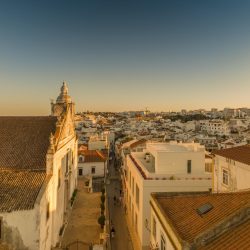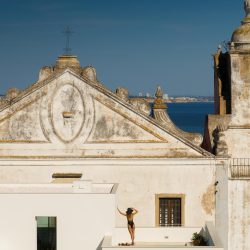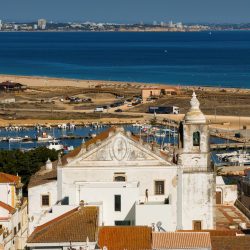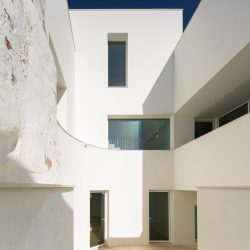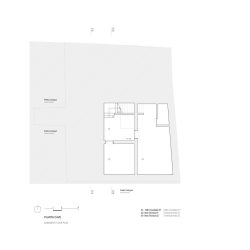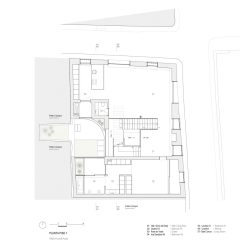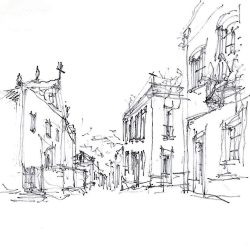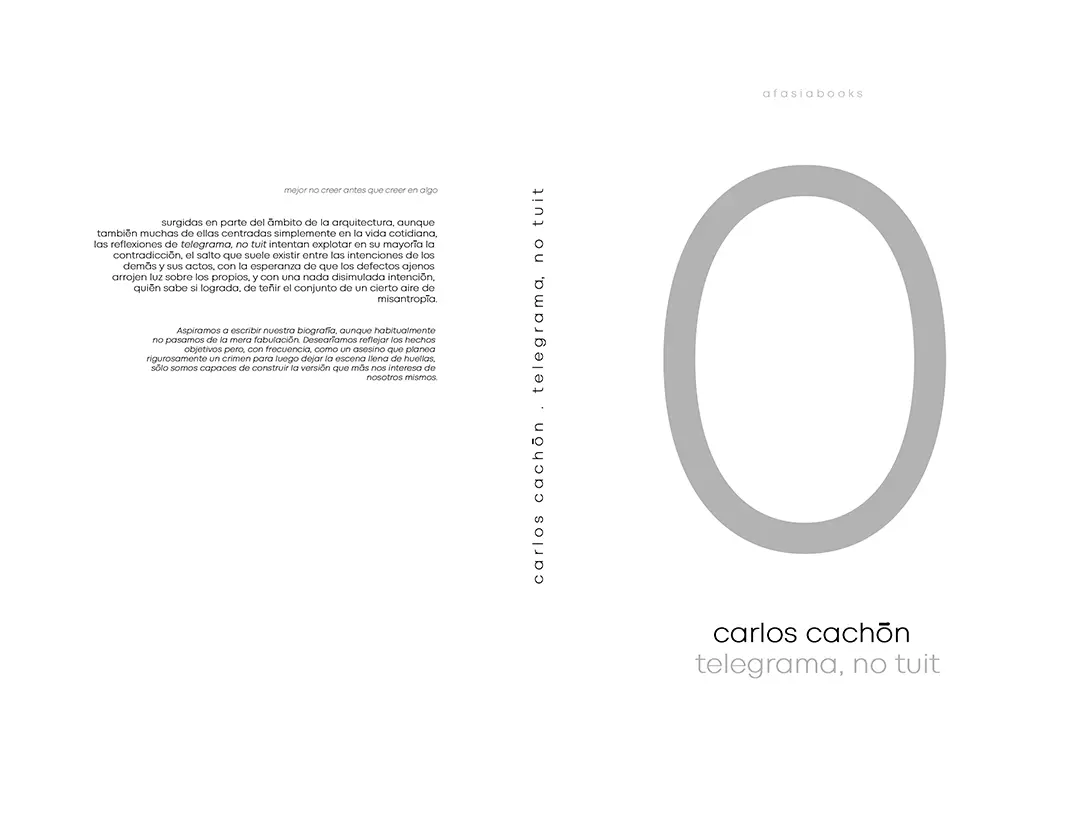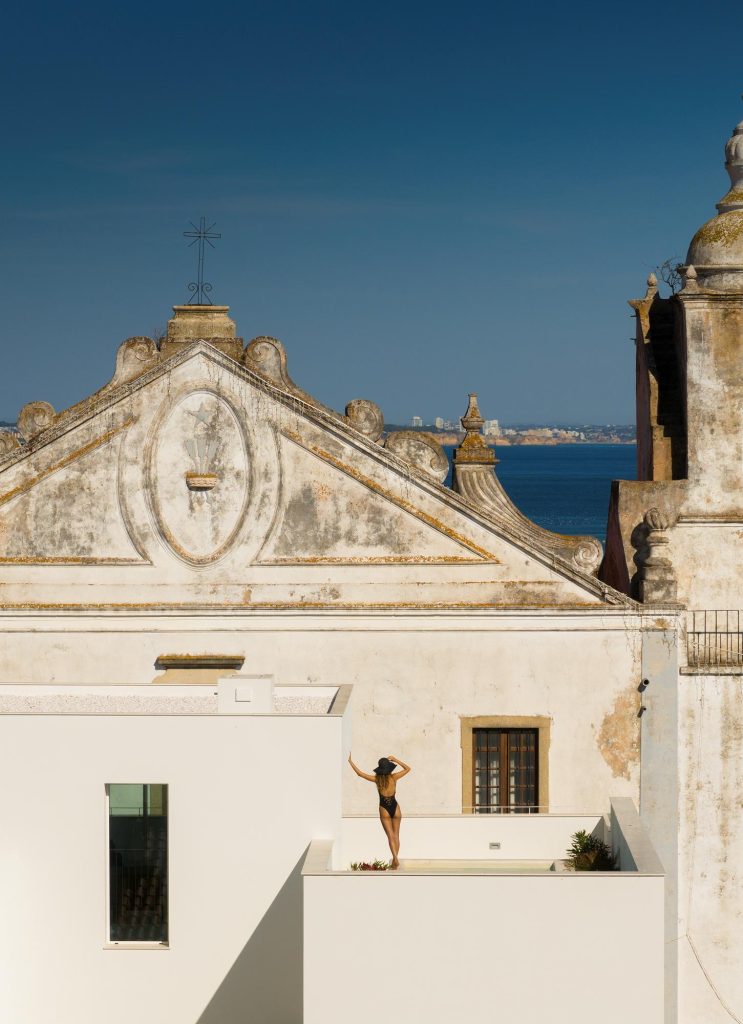
Mário Martins Atelier . photos: © Fernando Guerra / FG+SG
The project is for a building, on the corner of a block, built on the site of an old two-storey house which had been demolished. The building is an integral part of the urban fabric inside Lagos town walls and is opposite the Church of St Sebastião.
The building was therefore built from the ground up, to be a home for a couple with children, for them to live in a densely built, but quiet, area of the historic town centre.
With the aim of having a contemporary house, the scale and design is based on the surroundings and on the previous house. The biggest challenge is to ensure harmony with the church opposite, a building of greater size and exceptional character, that is a national monument.
It is therefore important to design a building to fit into and complete the block. A house that is quiet and solid, with a rhythmic metric, whose new design brings an identity, with the weight and perfume of the times, to a town with many centuries of existence.
The different levels of the two street facades and the intended spatial relationship between the house and its small courtyard determine the spatial organisation and fluid relationship between the floors.
The entrance is on the ground floor, in front of the church. Some steps and an outside atrium make the transition from the street to the house.
The entrance floor is dominated by the open hall, which gives us a view of the upper floors, and the staircase, where the second flight appears to be loose and floating. Three bedrooms with ensuite bathrooms lead off from this hall, which also leads to a small basement used for technical support.
Halfway down the stairs is the entrance to the garage, the laundry room and the outdoor patio which has a more intimate atmosphere, so typical of the south.
The first floor is an open space where, around the central opening, are the living and dining area, kitchen, a bathroom and the master bedroom.
The roof level has a discreet, recessed floor, which leads to a panoramic terrace with a swimming pool and leisure areas, wide open to the sun and the views.
The architectural and technical results are also based on having high levels of sustainability, with particular emphasis on: +High thermal comfort, determined by design and construction techniques; Solar control; +Use of solar energy; +Solutions that reduce using water resources; +Using locally sourced raw materials and suppliers.
Resulting from an analysis of the morphological and architectural structure of the surroundings, the house is a restrained but rigorous response to the local architecture.
White painted plaster covers the building, interspersed with deep mouldings in the light limestone of the region.
The generous thickness of the exterior walls of the previous house is repeated. This emphasises the shadows, volume, verticality, rhythm, metrics of the openings and the building materials, which accentuate the weight and character of the building.
A compromise between the past and the present has revitalised the space and the urban experience in an area that is so sensitive due to its proximity to the Church of St Sebastião.
_

